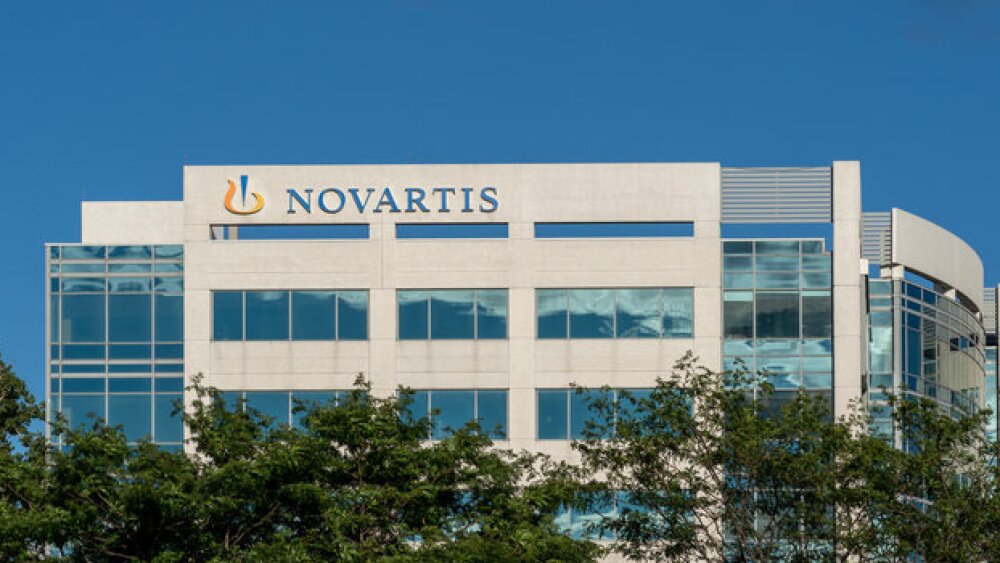The Swiss pharma will seek accelerated approval for iptacopan in IgA nephropathy next year after the complement blocker demonstrated promising efficacy in the Phase III APPLAUSE-IgAN study.
Pictured: Novartis office in Canada/iStock, JHVEPhoto
Topline data from the Phase III APPLAUSE-IgAN study showed that Novartis’ investigational complement inhibitor iptacopan met its pre-specified interim analysis primary endpoint, the company announced Monday.
Novartis did not provide specific data in its announcement but said that at nine months, patients with IgA nephropathy (IgAN) treated with iptacopan saw a statistically significant and clinically meaningful reduction in proteinuria compared with placebo counterparts. The study also found iptacopan’s safety profile to be consistent with what had previously been reported.
With this strong performance, Novartis announced that it is eyeing an FDA application for accelerated approval in 2024.
“These positive data from the Phase III APPLAUSE study reinforce the potential of iptacopan to provide clinically meaningful benefit to patients with IgAN,” Shreeram Aradhye, Novartis chief medical officer and president of development, said in a statement.
APPLAUSE-IgAN is a randomized, double-blinded, parallel-group and placebo-controlled study enrolling around 470 patients with primary IgAN. Iptacopan was given at a 200-mg oral dose twice daily in addition to supportive care, consisting of maximally tolerated angiotensin-converting enzyme inhibitors or angiotensin II receptor blockers.
Aside from proteinuria, the study is also assessing as its second primary endpoint the annualized total estimated glomerular filtration rate (eGFR) slope over 24 months. APPLAUSE-IgAN will continue double-blinded to measure this endpoint, with topline data expected in 2025, according to Novartis’ announcement.
IgAN is a rare and progressive kidney disease triggered by an autoimmune reaction against an abnormal form of the IgA antibody. This reaction leads to the accumulation of immune complexes in the kidney, which in turn elicit an inflammatory response that damages the organ and compromises its function. IgAN mostly affects young adults and manifests as edema, back pain and foamy or bloody urine.
Iptacopan is an orally available inhibitor of the alternative complement pathway, the activation of which is a known driver of IgAN.
Novartis’ Phase III victory on Monday follows a high-profile late-stage stumble by Travere Therapeutics, which two weeks ago revealed that its kidney drug Filspari (sparsentan) narrowly missed one of its key endpoints in the confirmatory Phase III PROTECT study. Compared with irbesartan, Filspari was unable to induce a significantly better improvement in eGFR total slope, though it did achieve statistical superiority in terms of eGFR chronic slope, the mean rate of change from week 6 to week 110.
Filspari won accelerated approval in February 2023. To keep it on the market Travere ran PROTECT as the confirmatory study. The company is preparing for a supplemental New Drug Application in the first half of 2024, seeking full approval for Filspari.
Tristan Manalac is an independent science writer based in Metro Manila, Philippines. He can be reached at tristan@tristanmanalac.com or tristan.manalac@biospace.com.
Correction (October 5): This story has been updated to clarify that eGFR chronic slope in Travere’s study was calculated from week 6 to week 110. A previous version had incorrectly stated that it was calculated after three months.






